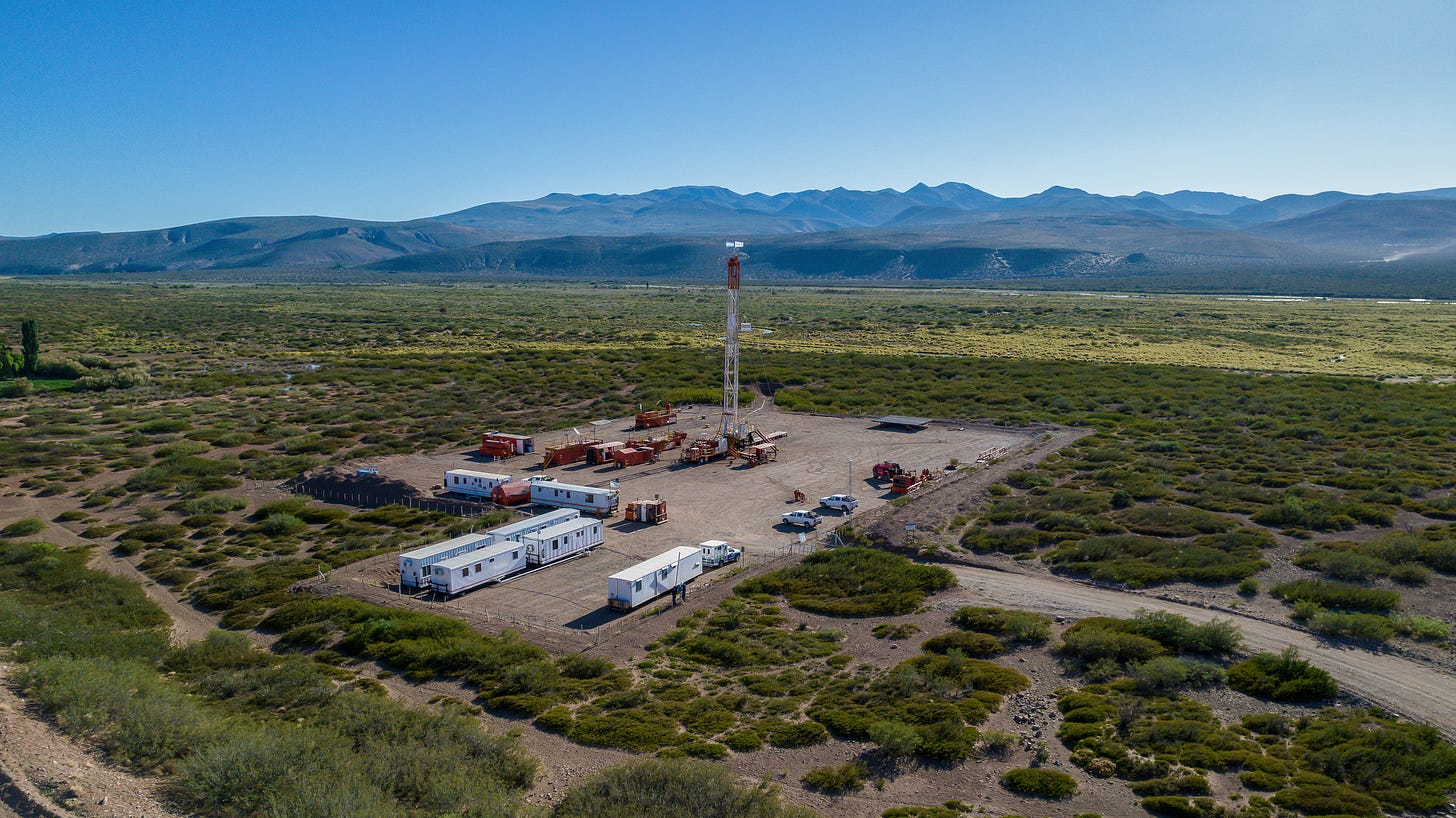Cash Cow
Milei’s Argentina goes all-in on oil and gas development.
"It will not be easy, 100 years of failure cannot be undone in one day, but one day begins and today is that day.” – Javier Milei
Much ink has been spilled chronicling the remarkable rise of Javier Milei, President of Argentina. Running on campaign promises to slash government spending, privatize much of the country’s sprawling and corrupt public sector, and swiftly return the country to free market capitalism, Milei was swept into office with almost 56% of the vote in last November’s runoff election. Despite being blessed with incredible resources and a rich culture, Argentina has endured what amounts to a lost century, with consistent bouts of hyperinflation, debt defaults, and political upheaval. In the eyes of many, Milei’s shock therapy is just what the long-suffering nation needs.
Although Milei won a strong personal mandate, his La Libertad Avanza party fared far less well in the legislative elections, securing modest seat totals in both the Chamber of Deputies and Senate. This has slowed the pace of change and trimmed the breadth of what he was hoping to accomplish. After months of drawn-out debate and controversy, Milei finally achieved a significant breakthrough over the summer:
“President Javier Milei's flagship economic reforms kicked in on Monday as his government formally promulgated the ‘Ley de Bases’ bill into law. The sweeping reform push will usher in the privatisation of some state firms, the relaxation of labour laws and a new foreign investment incentive scheme, among other changes.
The raft of reforms – which contains more than 200 articles and comes with an accompanying fiscal package – was enacted after months of debate and violent protests against the bill, amid a punishing recession and harsh austerity measures that have hit Argentines hard.”
By all accounts, the scope of the reforms bill is historic, including its implications for Argentina’s energy industry, which has always been long on potential but short on realization. According to a detailed analysis by the white-shoe law firm Mayer Brown, the country is now open for business in an unprecedented manner:
“Among other things, the Ley Bases specifically provides that: (i) permit holders and concessionaires may, with respect to the hydrocarbons they extract, transport them, commercialize them, industrialize them and sell their derivatives freely, subject to the regulations to be issued by the executive branch; (ii) permit holders, concessionaires, refiners and/or traders may freely export hydrocarbons and/or their derivatives, subject to receiving no objections from the Secretary of Energy; (iii) the international trade of hydrocarbons will be free, subject to the import and export regimes established by the executive branch; (iv) natural gas imports are authorized without the need for prior approval; (v) LNG export authorizations, for the volumes of LNG so authorized, will be firm and binding for a period of up to 30 years; and (vi) the granting of a firm and binding LNG export authorization shall imply for its holders the right to export all the volumes authorized in that capacity on a continuous basis and without interruptions or restrictions, reductions, or redirections for any reason, during each day of the term of the respective export authorization, as well as the right to access, without restrictions or interruptions of any nature, the supply of natural gas or to the transportation, processing, or storage capacity of which they are holders, or which they have contracted with third parties.”
Milei’s broad embrace of investor money into the hydrocarbon sector could be material on a global scale given the country’s massive oil and gas resources. When combined with his strong pro-US stance and improving relationship with the International Monetary Fund (IMF), explosive growth in Argentina’s oil and gas industry could reset global energy balances for decades to come. Much depends on whether international investors think Milei can see his vision through to durable success. Let’s assess the possibilities.



